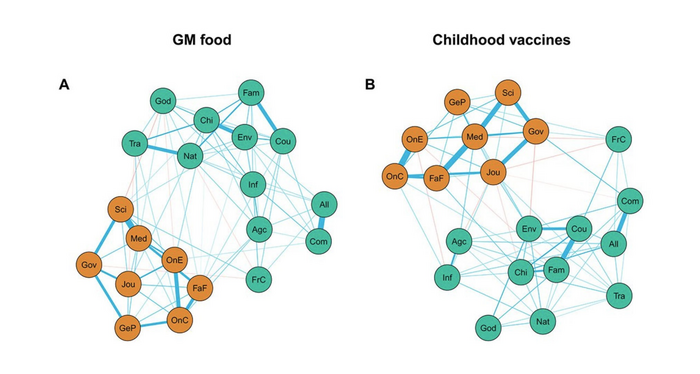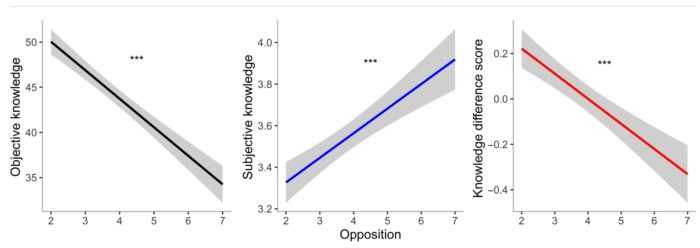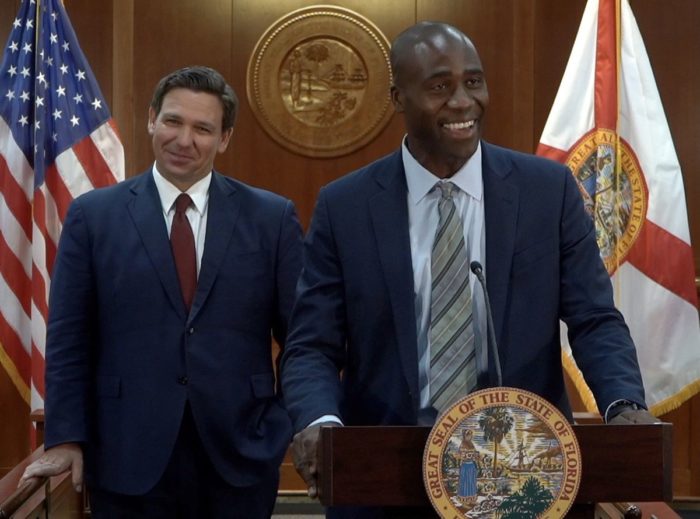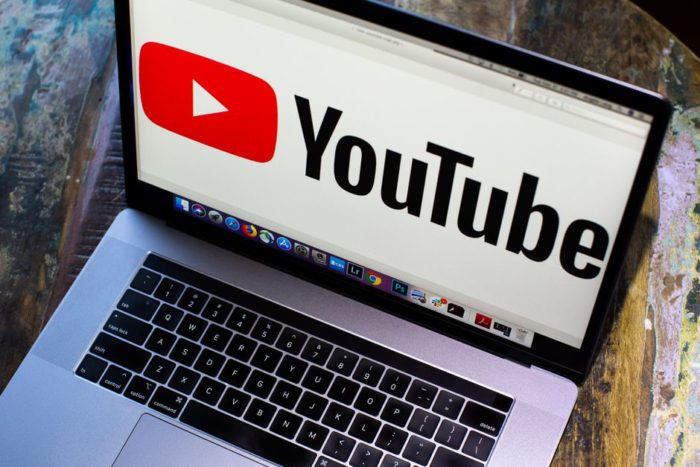Oct
31
2022
 Genetic engineering is a rapidly progressing scientific discipline, with tremendous current application and future potential. It’s a bit dizzying for a science communicator who is not directly involved in genetics research to keep up. I do have some graduate level training in genetics so at least I understand the language enough to try to translate the latest research for a general audience.
Genetic engineering is a rapidly progressing scientific discipline, with tremendous current application and future potential. It’s a bit dizzying for a science communicator who is not directly involved in genetics research to keep up. I do have some graduate level training in genetics so at least I understand the language enough to try to translate the latest research for a general audience.
Many readers have by now heard of CRISPR – a powerful method of altering or silencing genes that brings down the cost and complexity so that almost any genetics lab can use this technique. CRISPR is actually just the latest of several powerful gene-altering techniques, such as TALEN. CRISPR is essentially a way to target a specific sequence of the DNA, and then deliver a package which does something, like splice the DNA. But you also need to target the correct cells. In a petri dish, this is simple. But in living organism, this is a huge challenge. We have developed several viral vectors that can be targeted to specific cell types in order to deliver the CRIPR (or TALEN), which then targets the specific DNA.
Now I would like to present a different technique I have not previously written about here – alternative splicing. A recent study presents what seems like a significant advance in this technology, so it’s a good time to review it. “Alternative splicing” refers to a natural phenomenon of genetics. Genes are composed of introns and exons. I always thought the nomenclature was counterintuitive, but the exons are actually the part of the gene that gets expressed into a protein. The introns are the part that is not expressed, so they are cut out of the gene when it is being converted into mRNA, and the exons are stitched together to form the sequence that is translated into a protein. Alternative splicing refers to the fact that the way in which the introns are removed and the exons stitched together can vary, creating alternative forms of the resulting protein. This dramatically increases the number of different proteins that an organism’s genes can code for, because each gene can potentially code for multiple protein variants through alternative splicing.
Continue Reading »
Aug
23
2022
 How people make decisions has been an intense area of study from multiple angles, including various disciplines within psychology and economics. Here is a fascinating article that provides some insight into the state of the science addressing this broad question. It is framed as a meta-question – do we have the right underlying model that properly ties together all the various aspects of human decision-making? It is not a systematic review of this question, and really just addresses one key concept, but I think it helps frame the question.
How people make decisions has been an intense area of study from multiple angles, including various disciplines within psychology and economics. Here is a fascinating article that provides some insight into the state of the science addressing this broad question. It is framed as a meta-question – do we have the right underlying model that properly ties together all the various aspects of human decision-making? It is not a systematic review of this question, and really just addresses one key concept, but I think it helps frame the question.
The title reflects the author’s (Jason Collins) approach – “We don’t have a hundred biases, we have the wrong model.” The article is worth a careful read or two if you are interested in this topic, but here’s my attempt at a summary with some added thoughts. As with many scientific phenomena, we can divide the approach to human decision making into at least two levels, describing what people do and an underlying theory (or model) as to why they behave that way. Collins is coming at this mostly from a behavioral economics point of view, which starts with the “rational actor” model, the notion that people generally make rational decisions in their own self-interest. This model also includes the premise the individual have the computational mental power to arrive at the optimal decision, and the willpower to carry it out. When research shows that people deviate from a pure rational actor model of behavior, those deviations are deemed “biases”. I’ve discussed many such biases in this blog, and hundreds have been identified – risk aversion, sunk cost, omission bias, left-most digit bias, and others. It’s also recognized that people do not have unlimited computational power or willpower.
Collins likens this situation to the Earth-centric model of the universe. Geocentrism was an underlying model of how the universe worked, but did not match observations of the actual universe. So astronomers introduced more and more tweaks and complexities to explain these deviations. Perhaps, Collins argues, we are still in the “geocentrism” era of behavioral psychology and we need a new underlying model that is more elegant, accurate, and has more predictive power – a heliocentrism for human decision-making. He acknowledges that human behavior it too complex and multifaceted to follow a model as simple and elegant as, say, Kepler’s laws of planetary motion, but perhaps we can do better than the rational actor model tweaked with many biases to explain each deviation.
Continue Reading »
Jul
22
2022
 There has been a lot of research exploring the phenomenon of rejection of established science, even to the point of people believing demonstrably absurd things. This is a complex phenomenon, involving conspiracy thinking, scientific illiteracy, group identity, polarization, cognitive styles, and media ecosystems, but the research has made significant progress unpacking these various contributing factors. A recent study adds to the list, focusing on the rejection of scientific consensus.
There has been a lot of research exploring the phenomenon of rejection of established science, even to the point of people believing demonstrably absurd things. This is a complex phenomenon, involving conspiracy thinking, scientific illiteracy, group identity, polarization, cognitive styles, and media ecosystems, but the research has made significant progress unpacking these various contributing factors. A recent study adds to the list, focusing on the rejection of scientific consensus.
For most people, unless you are an expert in a relevant field, a good first approximation of what is most likely to be true is to understand and follow the consensus of expert scientific opinion. This is just probability – people who have an understanding of a topic that is orders of magnitude beyond yours are simply more likely to have an accurate opinion on that topic than you do. This does not mean experts are always right, or that there is no role for minority opinions. It mostly means that non-experts need to have an appropriate level of humility, and at least a basic understanding of the depth of knowledge that exists. I always invite people to consider the topic they know the best, and consider the level of knowledge of the average non-expert. Well, you are that non-expert on every other topic.
This is also why humility is the cornerstone of good scientific skepticism and critical thinking. We are all struggling to be just a little less wrong. As a science enthusiast we are trying to understanding a topic at a generally superficial technical level. This can still be a very meaningful and generally accurate understanding – just not technically deep or rigorous. It’s one thing to say – yeah, I get the basic concept of quantum computers, how they work, and why they can be so powerful. It’s another to be able to read and understand the technical literature, let alone contribute to it. Often people get into trouble when they confuse their lay understanding of a topic for a deep expert understanding, usually resulting in them becoming cranks.
Continue Reading »
Feb
07
2022
 The latest controversy over Joe Rogan and Spotify is a symptom of a long-standing trend, exacerbated by social media but not caused by it. The problem is with the algorithms used by media outlets to determine what to include on their platform.
The latest controversy over Joe Rogan and Spotify is a symptom of a long-standing trend, exacerbated by social media but not caused by it. The problem is with the algorithms used by media outlets to determine what to include on their platform.
The quick summary is that Joe Rogan’s podcast is the most popular podcast in the world with millions of listeners. Rogan follows a long interview format, and he is sometimes criticized for having on guests that promote pseudoscience or misinformation, for not holding them to account, or for promoting misinformation himself. In particular he has come under fire for spreading dangerous COVID misinformation during a health crisis, specifically his interview with Dr. Malone. In an open letter to Rogan’s podcast host, Spotify, health experts wrote:
“With an estimated 11 million listeners per episode, JRE, which is hosted exclusively on Spotify, is the world’s largest podcast and has tremendous influence,” the letter reads. “Spotify has a responsibility to mitigate the spread of misinformation on its platform, though the company presently has no misinformation policy.”
Then Neil Young gave Spotify an ultimatum – either Rogan goes, or he goes. Spotify did not respond, leading to Young pulling his entire catalog of music from the platform. Other artists have also joined the boycott. This entire episode has prompted yet another round of discussion over censorship and the responsibility of media platforms, outlets, and content producers. Rogan himself produced a video to explain his position. The video is definitively not an apology or even an attempt at one. In it Rogan makes two core points. The first is that he himself is not an expert of any kind, therefore he should not be held responsible for the scientific accuracy of what he says or the questions he asks. Second, his goal with the podcast is to simply interview interesting people. Rogan has long used these two points to absolve himself of any journalistic responsibility, so this is nothing new. He did muddy the waters a little when he went on to say that maybe he can research his interviewees more thoroughly to ask better informed questions, but this was presented as more of an afterthought. He stands by his core justifications.
Continue Reading »
Jan
27
2022
 The Twitterverse is outraged, appropriately, it turns out, that Florida Acting Surgeon General Joseph Ladapo, who is undergoing confirmation hearings, refused to state when asked directly four times, that the COVID vaccines are safe and effective. At first he straight-up dodged the question, saying, “The question is a scientific one.” Uh, yeah, and you’re an MD, PhD with a degree in public health (i.e. a medical scientist) so answer the question. When pushed repeatedly he finally did answer that the vaccines have:
The Twitterverse is outraged, appropriately, it turns out, that Florida Acting Surgeon General Joseph Ladapo, who is undergoing confirmation hearings, refused to state when asked directly four times, that the COVID vaccines are safe and effective. At first he straight-up dodged the question, saying, “The question is a scientific one.” Uh, yeah, and you’re an MD, PhD with a degree in public health (i.e. a medical scientist) so answer the question. When pushed repeatedly he finally did answer that the vaccines have:
“reasonable effectiveness for the prevention of hospitalization and death” and “relatively low effectiveness for prevention” against transmission over time.
This is not accurate. They have extremely high effectiveness at preventing hospitalization and death. The risk of dying from COVID is 53 times greater for those who are unvaccinated vs those who are fully boosted. Regarding prevention of transmission, Ladapo is narrowly correct but misleading through selective reporting. Studies show that a fully vaccinated person has a relative risk of 0.32 of passing on the virus compared to an unvaccinated person (so an unvaccinated person who gets COVID is 3 times more likely to pass it on). This is not “low effectiveness”, but the same data does also show that this protection wanes over time, and is mostly gone three months after the second shot. However, this is for vaccinated but not boosted individuals. Other studies show that boosted individuals have a 93% relative reduction in their risk of contracting COVID (even Delta), either symptomatic or asymptomatic, and of course people who never catch the virus cannot pass it on.
Continue Reading »
Dec
16
2021
 The COVID-19 pandemic is not done with us yet. We are still in the middle of the delta surge, and while delta will eventually pass, the omicron variant is right on its heels. In the US we just passed the milestone of 800,000 people dead from COVID with over 50 million cases. More Americans died of COVID in 2021 than in 2020, although in 2021 most deaths were among the unvaccinated. The vaccines remain our best defense against this pandemic, which is why it is tragic that there are still holdouts for tribal or ideological reasons. Regardless, it is extremely likely that we will be dealing with COVID through 2022. It is also likely that COVID is now endemic, and while it may fade down to flu-like proportions, we will also very likely have to deal with it for years to come. COVID is also likely not the last respiratory pandemic we will have to deal with this century.
The COVID-19 pandemic is not done with us yet. We are still in the middle of the delta surge, and while delta will eventually pass, the omicron variant is right on its heels. In the US we just passed the milestone of 800,000 people dead from COVID with over 50 million cases. More Americans died of COVID in 2021 than in 2020, although in 2021 most deaths were among the unvaccinated. The vaccines remain our best defense against this pandemic, which is why it is tragic that there are still holdouts for tribal or ideological reasons. Regardless, it is extremely likely that we will be dealing with COVID through 2022. It is also likely that COVID is now endemic, and while it may fade down to flu-like proportions, we will also very likely have to deal with it for years to come. COVID is also likely not the last respiratory pandemic we will have to deal with this century.
All of this is why masks are still important. We just have to accept the fact that face masks are now an important part of life. At least for the foreseeable future we will need face masks as a layer of protection in health care settings, large indoor crowds, among vulnerable populations, and for anyone who is symptomatic. Walking around in the public maskless, sneezing and coughing from a “cold” is no longer socially acceptable. If you want to avoid the mask in small or outdoor crowds and in gatherings of family and friends, then get fully vaccinated. But even then, there are some situations where masks provide an extra needed layer of protection.
There are at least two important questions relating to mask wearing. The first is – do they really work? The short answer is yes, they do. But obviously there is some complexity here. When worn properly, and in the right setting, masks provide a measurable level of protection from a respiratory infection. They protect you and they protect others. The latest evidence to support this conclusion looked at countries with and without face mask policies. They found:
Average COVID-19 mortality per million was 288.54 in countries without face mask policies and 48.40 in countries with face mask policies.
Continue Reading »
Nov
29
2021
 Experts knew, and had been warning, that delta was not going to be the last Greek letter to sweep across the world. The World Health Organization (WHO) tracks variants of the SARS-CoV-2 virus which causes COVID-19. They track variants of interest (VOI) which have been identified as potentially problematic, and variants of concern (VOC) which have been demonstrated to have either increased infectivity, increased illness severity, and/or evasion of preventive measures (such as vaccines or masks). These variants are given a Greek letter designation as they are added to the list. What is now called the omicron variant has been added to the list of VOC. Here’s what we know so far.
Experts knew, and had been warning, that delta was not going to be the last Greek letter to sweep across the world. The World Health Organization (WHO) tracks variants of the SARS-CoV-2 virus which causes COVID-19. They track variants of interest (VOI) which have been identified as potentially problematic, and variants of concern (VOC) which have been demonstrated to have either increased infectivity, increased illness severity, and/or evasion of preventive measures (such as vaccines or masks). These variants are given a Greek letter designation as they are added to the list. What is now called the omicron variant has been added to the list of VOC. Here’s what we know so far.
The virus appears to have originated in South Africa. Fortunately, South Africa has a robust surveillance system and labs that can grow the virus and do a whole-genome sequence. They were therefore able to identify the variant quickly and share their information with the world. This isn’t the first variant to originate in South Africa, which raises the question of why this is the case? Increased surveillance may be part of the answer, but is not able to fully explain why. Some scientists speculate that South Africa’s large population of HIV infected and inadequately treated people provide a fertile breeding ground for new variants.
Variants are caused by mutations in the virus genome, some of which may alter proteins and therefore viral functions. SARS-CoV-2 does not have a particularly high mutation rate, but because we are having a world-wide pandemic there are lots of opportunities for new mutations to occur. It’s possible that when a person has a prolonged infection the viruses in their system are under selective pressure, so any mutation that might partly evade the immune system will be favored. Those with untreated HIV have an impaired immune response. This may be just enough to provide some selective pressure but not enough to fight off the infection, creating a breeding ground for new variants.
Continue Reading »
Oct
01
2021
 There is pretty broad agreement that the pandemic was a net negative for learning among children. Schools are an obvious breeding ground for viruses, with hundreds or thousands of students crammed into the same building, moving to different groups in different classes, and with teachers being systematically exposed to many different students while they spray them with their possibly virus-laden droplets. Wearing masks, social distancing, and using plexiglass barriers reduces the spread, but not enough if we are in the middle of a pandemic surge. Only vaccines will make schools truly safe.
There is pretty broad agreement that the pandemic was a net negative for learning among children. Schools are an obvious breeding ground for viruses, with hundreds or thousands of students crammed into the same building, moving to different groups in different classes, and with teachers being systematically exposed to many different students while they spray them with their possibly virus-laden droplets. Wearing masks, social distancing, and using plexiglass barriers reduces the spread, but not enough if we are in the middle of a pandemic surge. Only vaccines will make schools truly safe.
So it was reasonable, especially in the early days of the pandemic, to convert schooling to online classes until the pandemic was under control. The problem was – most schools were simply not ready for this transition. The worst problem were those student who did not have access to a computer and the internet from home. The pandemic helped expose and exacerbate the digital divide. But even for students with good access, the experience was generally not good. Many teachers were not prepared to adapt their classes for online learning. Many parents did not have ability to stay at home with their kids to monitor them. And many children were simply bored and not learning.
This is a classic infrastructure problem. Many technologies do not function well in a vacuum. You can’t have cars without roads, traffic control, licensing, safety regulations, and fueling stations. Mass online learning also requires significant infrastructure that we simply didn’t have.
Continue Reading »
Sep
30
2021

Last year YouTube (owned by Google) banned videos spreading misinformation about the COVID vaccines. The policy resulted in the removal of over 130,000 videos since last year. Now they announce that they are extending the ban to misinformation about any approved vaccine. The move is sure to provoke strong reactions and opinions on both sides, which I think is reasonable. The decision reflects a genuine dilemma of modern life with no perfect solution, and amounts to a “pick your poison” situation.
The case against big tech companies who control massive social media outlets essentially censoring certain kinds of content is probably obvious. That puts a lot of power into the hands of a few companies. It also goes against the principle of a free market place of ideas. In a free and open society people enjoy freedom of speech and the right to express their ideas, even (and especially) if they are unpopular. There is also a somewhat valid slippery slope argument to make – once the will and mechanisms are put into place to censor clearly bad content, mission creep can slowly impede on more and more opinions.
There is also, however, a strong case to be made for this kind of censorship. There has never been a time in our past when anyone could essentially claim the right to a massive megaphone capable of reaching most of the planet. Our approach to free speech may need to be tweaked to account for this new reality. Further, no one actually has the right to speech on any social media platform – these are not government sites nor are they owned by the public. They are private companies who have to the right to do anything they wish. The public, in turn, has the power to “vote with their dollars” and choose not to use or support any platform whose policies they don’t like. So the free market is still in operation.
Continue Reading »
Sep
20
2021
It is not uncommon, if you do not like any particular finding of scientific research, to attack the institutions of science or even the very notion of science itself. These kinds of attacks are now common in the anti-vaccine pushback against common sense public health measures, and often from a religious or ideological perspective. It’s not surprising that the false claim that science is just philosophy has reared its head in such writings. The attack on science also tends to have at least two components. The first is a straw man about how scientists are pretending that science is a monolithic perfect and objective entity. This is then followed by the claim that, rather, science is just opinion, another form of subjective philosophy. This position is entirely wrong on both counts.
Here is one example, embedded in a long article loaded with misinformation about vaccines and the COVID pandemic. There is way too much misdirection in this article to tackle in one response, and I only want to focus on the philosophical claims. These are now common within certain religious circles, mostly innovated, at least recently, in the fight against the teaching of evolution. They have already lost this fight, philosophically, scientifically, and (perhaps most importantly) legally, but of course that does not mean they will abandon a bad argument just because its wrong.
First the straw man:
The second consequence of “following science” is that it reinforces one of modernity’s most enduring myths: that “science” is a consistent, compact, institutionally-guaranteed body of knowledge without interest or agenda. What this myth conceals is the actual operation of the sciences—multiple, messy, contingent, and tentative as they necessarily are.
The myth is itself a myth. It exists almost nowhere except in the minds of science deniers and those with an anti-science agenda. Elsewhere the author admits:
As a lay person, unqualified to judge the technical issues, I have concluded only that there might be a legitimate question here, and one that must, necessarily, remain open until time and experience can settle it.
Continue Reading »
 Genetic engineering is a rapidly progressing scientific discipline, with tremendous current application and future potential. It’s a bit dizzying for a science communicator who is not directly involved in genetics research to keep up. I do have some graduate level training in genetics so at least I understand the language enough to try to translate the latest research for a general audience.
Genetic engineering is a rapidly progressing scientific discipline, with tremendous current application and future potential. It’s a bit dizzying for a science communicator who is not directly involved in genetics research to keep up. I do have some graduate level training in genetics so at least I understand the language enough to try to translate the latest research for a general audience.
 How people make decisions has been an intense area of study from multiple angles, including various disciplines within psychology and economics.
How people make decisions has been an intense area of study from multiple angles, including various disciplines within psychology and economics.  There has been a lot of research exploring the phenomenon of rejection of established science, even to the point of people believing demonstrably absurd things. This is a complex phenomenon, involving conspiracy thinking, scientific illiteracy, group identity, polarization, cognitive styles, and media ecosystems, but the research has made significant progress unpacking these various contributing factors. A recent study adds to the list, focusing on the rejection of scientific consensus.
There has been a lot of research exploring the phenomenon of rejection of established science, even to the point of people believing demonstrably absurd things. This is a complex phenomenon, involving conspiracy thinking, scientific illiteracy, group identity, polarization, cognitive styles, and media ecosystems, but the research has made significant progress unpacking these various contributing factors. A recent study adds to the list, focusing on the rejection of scientific consensus. The latest controversy over Joe Rogan and Spotify is a symptom of a long-standing trend, exacerbated by social media but not caused by it. The problem is with the algorithms used by media outlets to determine what to include on their platform.
The latest controversy over Joe Rogan and Spotify is a symptom of a long-standing trend, exacerbated by social media but not caused by it. The problem is with the algorithms used by media outlets to determine what to include on their platform. The
The  The COVID-19 pandemic is not done with us yet. We are still in the middle of the delta surge, and while delta will eventually pass, the omicron variant is right on its heels.
The COVID-19 pandemic is not done with us yet. We are still in the middle of the delta surge, and while delta will eventually pass, the omicron variant is right on its heels.  Experts knew, and had been warning, that delta was not going to be the last Greek letter to sweep across the world. The World Health Organization (WHO)
Experts knew, and had been warning, that delta was not going to be the last Greek letter to sweep across the world. The World Health Organization (WHO)  There is pretty broad agreement that the pandemic was a net negative for learning among children. Schools are an obvious breeding ground for viruses, with hundreds or thousands of students crammed into the same building, moving to different groups in different classes, and with teachers being systematically exposed to many different students while they spray them with their possibly virus-laden droplets. Wearing masks, social distancing, and using plexiglass barriers reduces the spread, but not enough if we are in the middle of a pandemic surge. Only vaccines will make schools truly safe.
There is pretty broad agreement that the pandemic was a net negative for learning among children. Schools are an obvious breeding ground for viruses, with hundreds or thousands of students crammed into the same building, moving to different groups in different classes, and with teachers being systematically exposed to many different students while they spray them with their possibly virus-laden droplets. Wearing masks, social distancing, and using plexiglass barriers reduces the spread, but not enough if we are in the middle of a pandemic surge. Only vaccines will make schools truly safe.





